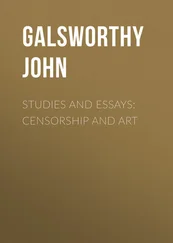Mina Loy - Stories and Essays of Mina Loy
Здесь есть возможность читать онлайн «Mina Loy - Stories and Essays of Mina Loy» весь текст электронной книги совершенно бесплатно (целиком полную версию без сокращений). В некоторых случаях можно слушать аудио, скачать через торрент в формате fb2 и присутствует краткое содержание. Год выпуска: 2011, Издательство: Dalkey Archive Press, Жанр: Современная проза, на английском языке. Описание произведения, (предисловие) а так же отзывы посетителей доступны на портале библиотеки ЛибКат.
- Название:Stories and Essays of Mina Loy
- Автор:
- Издательство:Dalkey Archive Press
- Жанр:
- Год:2011
- ISBN:нет данных
- Рейтинг книги:3 / 5. Голосов: 1
-
Избранное:Добавить в избранное
- Отзывы:
-
Ваша оценка:
- 60
- 1
- 2
- 3
- 4
- 5
Stories and Essays of Mina Loy: краткое содержание, описание и аннотация
Предлагаем к чтению аннотацию, описание, краткое содержание или предисловие (зависит от того, что написал сам автор книги «Stories and Essays of Mina Loy»). Если вы не нашли необходимую информацию о книге — напишите в комментариях, мы постараемся отыскать её.
Stories and Essays of Mina Loy
Stories and Essays of Mina Loy — читать онлайн бесплатно полную книгу (весь текст) целиком
Ниже представлен текст книги, разбитый по страницам. Система сохранения места последней прочитанной страницы, позволяет с удобством читать онлайн бесплатно книгу «Stories and Essays of Mina Loy», без необходимости каждый раз заново искать на чём Вы остановились. Поставьте закладку, и сможете в любой момент перейти на страницу, на которой закончили чтение.
Интервал:
Закладка:
Temperamentally content to enormously appreciate the world as it is patterned for us; unable to imagine what part was mine in this over-all alarm I miserably supposed my unfounded distraction to be symptomatic of insanity. But I was not inclined to give in — consent to it when I had not invoked it.
However onerously, I would go on as usual — struggling through a sort of double life half my conscious esse belabouring the other half with blows of inordinate apprehension — of what, I could not even guess — while dropping smiled “darlings” to my daughter who responded, “What makes you always so damned cheerful?”
Before the mysterious onslaught, I had been about to look through the New Testament to locate, in chapter and verse, the inspired utterances of Christ. Such as
“The Spirit” (all conscious Power) is everlasting life; the letter (derivative unconscious force) is death. (This being only one significance of this cosmic saying)
Resolute, I returned with my manuscript to the lately inconducive garden seat, determined to proceed with my writing, taking for granted my former confirmations survived the unaccountable transformation.
I searched the scriptures for the divine citations — — — and at once it was as if the very roots of the supreme knowledge were being torn up and the leaves of the tree with threatening verses in celebration of doom printed upon them, scattered in the patient face of humanity, lashing it, blinding it — — a ruthless tornado of castigation; the breath of a god whose raving majesty consisted in correcting his creature, purely for being as created.
All I seemed allowed to perceive in such darkened scriptures were authorized specifications for Inquisition. In a black-out vision — phantasmagoria of the exoteric religious debacle — my mind submitted to some abnormal pressure, brought into focus with that of the Inquisitor, was forced to concede his interpretation alone to be logical.
In line with such gospel very Eternity deteriorated to an ultimate dimension of hopelessness from which there is no escape, even the suicidal, for man accounted endlessly responsible for not having formed himself in his own unlikeness.
There was nothing to seek in this shattered scripture — — nothing to write with thought defeated.
For weeks, I resisted, a misery so mysteriously baseless, slowly reducing to tremulous fear the terror that appeared to invade me from something endlessly surrounding me — till it faded to the annoyance of neurosis — — — this lessening
UNIVERSAL FOOD MACHINE
I. Universal Food Machine
Open radiators at regular intervals along the streets to temperate the rigours of winter — and as an integral part of the architecture heated shelters for those anonymous creatures who seem to come from nowhere and to be going nowhere.
Also automatic distributors of some luscious soup most carefully composed of the essential elements of perfect nurture, and so savoury that it stimulates the more subtle faculties — together with exquisite croutons to furnish the necessary sensation of solidity that is needful for the ease of the digestive organs. How much would be saved by calling in the vast sums in disseminated charity and pooling them for a national distribution of general welfare. How easily would such an overhaulment occupy the millions of unemployed.
What a reduction in the donations for hospitals.
Halt says the practical moralist — would you encourage thriftlessness and idleness — but what has become of thrift in the face of unemployment — and idleness is abnormal — a paralysis of the nervous system resulting from blind education.
As by all the laws of psychology — the equality clamoured for by the socialist is an obvious impossibility — and as such equality is the desire of a type of mind whose experience has been too rude a familiarity with the elemental necessities of life — and therefore with little apprehension of those aesthetic necessities of leisure.
The trend of politics tends towards a levelling down — but what is there impractical in the conception of levelling up—
There may be an inevitable social ladder — and consequently a lowest rung — but it is a matter of merely humane decency that that lowest rung should be shifted higher up.
For surely we have sufficient knowledge to discern that human life constrained to concentrate on the preservation of the body alone — has no value — and the more we shall come to realise that the body is merely an instrument — we shall realise the moral obligation of setting society on such a basis as will provide.
II. War
We speak a great deal about the end of War— We desire the end of War— You will nowhere find an individual who prays for War. Yet War would not come upon us if it were not invoked. By whom is it invoked? It seems impossible that it should be so — and yet it is so— War is not a scourge of destiny which falls upon us independently of our will.
Yet look around us at the peoples of belligerent nations on the eve of hostilities.
One side must surely show some signs — of an atavistic ferocity — but no — save for those — differences that mark the race — and at a long distance disappear leaving the opposing peoples looking so exactly the same—
You will find the same farewells to affection in deference to duty. The same stern-jawed youth facing the same horror — turning his back on the same amenities of life both youths have.
III. Effluvia of decomposition of the Spirit
All evil thought, all cruelty, the paralysed vitality of loneliness, the crushed vibrations of drudgery and the bewilderment induced by enigmatic injustices are broadcast through our universe and received by the collective human organism. Think not that all the agonies such as for instance those sustained in War end with the dying of the bodies which endured them, for they are “on the air” and like a poison gas enfeeble the survivors. The decomposing bodies are buried to avert contagion, but the decomposition of the spirit, impalpable to our senses, is an inconfinable and a lasting corruption.
Yet History reveals our race intent on the manufacture of so dangerous a psychic chemical that the world in the end will succumb to its effluvia if we cannot succeed in evolving an ethical antidote.
Scientists are beginning to experiment with the vibrations of the brain while these and similar vibrations have been known to the mystic from time immemorial to be as effectual as the vibrations of light and sound.
Therefore when Christ commanded us to do unto others as we would that they should do unto us, it was as a primary measure of spiritual hygiene.
We cannot draw a fully wholesome breath from an atmosphere laden with enforced anguish. For suffering of itself is charged with lasting forces of destruction — leaving us a heritage of insecurity and disaster that accumulates affliction, and as an invisible ray, darts out disease and mortal confusion.
WILLIAM CARLOS WILLIAMS
Williams has overwhelmed the earlier impressionism of surface with a new impressionism of the structural Entire: his pen a probe.
Analysing, for us, the components — indigenous and historical — of an unwitting majority, he draws unprecedented deductions from Everyman’s impacts which are forever
“kindling his mind (more
than his mind will kindle)”
As an observer Williams’s complete integrity of meditation reaches that ultimate exactitude which alone refreshes poetry with unexpected marriages of words — — — giving his verse the enduring individuality of his
“Chronic hills”
NOTES 1
Интервал:
Закладка:
Похожие книги на «Stories and Essays of Mina Loy»
Представляем Вашему вниманию похожие книги на «Stories and Essays of Mina Loy» списком для выбора. Мы отобрали схожую по названию и смыслу литературу в надежде предоставить читателям больше вариантов отыскать новые, интересные, ещё непрочитанные произведения.
Обсуждение, отзывы о книге «Stories and Essays of Mina Loy» и просто собственные мнения читателей. Оставьте ваши комментарии, напишите, что Вы думаете о произведении, его смысле или главных героях. Укажите что конкретно понравилось, а что нет, и почему Вы так считаете.












